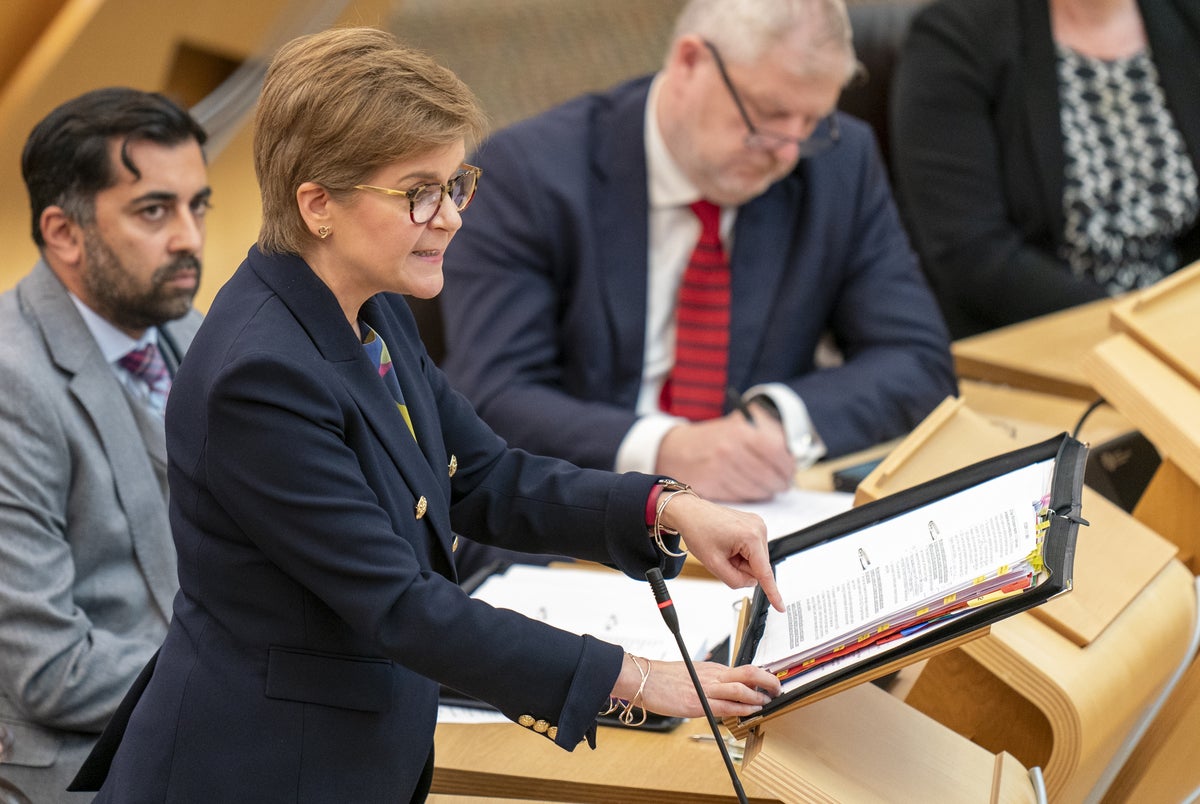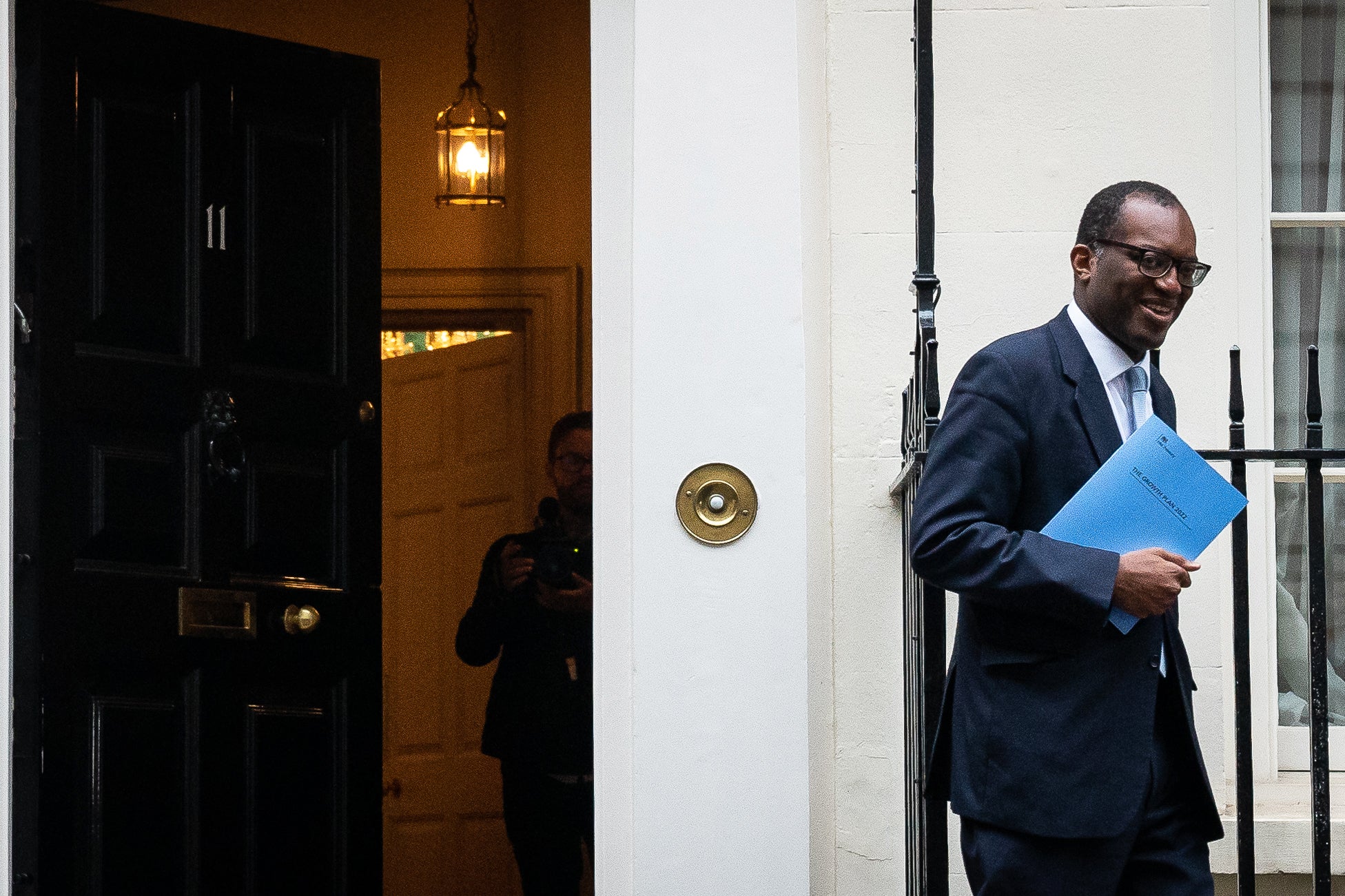
Liz Truss and her chancellor Kwasi Kwarteng were accused of producing a “Robin Hood in reverse” economic plan helping the “already wealthy” after announcing a raft of tax cuts which benefit the rich the most.
The Treasury put the cost of mini-Budget tax cuts – including the scrapping of the top rate of income tax – at nearly £45bn a year by 2026. The richest 5 per cent would enjoy almost half of the gains, experts said.
High earners getting more than £150,000 a year will no longer pay the top income tax rate of 45 per cent and will instead pay the 40 per cent rate paid by those earning over £50,000.
It means the 629,000 people earning over £150,000 will enjoy an average tax cut worth £10,000 a year, according to Treasury officials. The government loses out on more than £2bn a year from the plan.
Labour’s shadow chancellor Rachel Reeves said the government had “decided to replace levelling up with trickle down” – accusing Ms Truss of subscribing to “an ideology that says if we simply reward those who are already wealthy, the whole of society will benefit”.
SNP leader and Scotland’s first minister Nicola Sturgeon said the super-rich will be “laughing all the way to the actual bank” – accusing the Tories of “moral bankruptcy”. Stormont’s Sinn Fein finance minister Conor Murphy also condemned the “Thatcherite on steroids” budget.
Business groups gave a cautious welcome to the chancellor’s mini-Budget. But the markets panicked, as the pound fell to a new 37-year low, and unions were scathing – calling it “Robin Hood in reverse”.
TUC general secretary Frances O’Grady said the government was “holding down wages and lining the pockets of big corporations and City bankers”, adding: “This budget is Robin Hood in reverse.”
Unite general secretary Sharon Graham said it was “unashamedly a budget for the rich, big business and the City … whilst millions of ordinary families continue to struggle to make ends meet”.
The Royal College of Nursing described the mini-Budget as giving “billions to bankers and nothing to nurses’”. General secretary Pat Cullen also said she was urging nurses to vote in favour of strike action when the ballot opens on 6 October.
Almost half of the tax cuts confirmed today by Mr Kwarteng will go to richest 5 per cent of the population, who will be £8,560 better off, according to the Resolution Foundation.
Britons earning £200,000 will gain another £5,220 a year from the tax cuts, while people earning £20,000 will gain just £157.
Just 12 per cent of the tax cut gains will go to the poorest half of households, who will be only £230 better off on average next year.
The Joseph Rowntree Foundation said the mini-Budget proved the government had “no understanding of the economic reality facing millions” and had “clearly chosen to turn its back on millions who are on the lowest incomes”.
The Institute of Fiscal Studies (IFS) also said the richest would gain the most from the income tax rate change. “A small amount of people gaining a lot from that measure,” said IFS deputy director Carl Emmerson.
Mr Kwarteng claimed that the changes “will simplify the tax system and make Britain more competitive”, and argued his economic vision will “turn the vicious cycle of stagnation into a virtuous cycle of growth”.
However, the government revealed a huge increase of £78bn in additional borrowing for the rest financial year, mostly to pay for the loss in revenue. The Resolution Foundation said Mr Kwarteng’s plan will see a staggering £411bn of additional borrowing over the five years.

The major tax-cutting package included a cut to national insurance and corporation tax, VAT-free shopping for overseas visitors and cuts to stamp duty, as well as the end of the limit on bankers’ bonuses.
The chancellor accelerated a planned 1p cut in the basic rate of income tax – from 20p to 19p – which will now come into force next April, instead of in 2024.
The recent 1.25 per cent rise in national insurance will be reversed in November. April’s planned rise in corporation tax from 19 per cent to 25 per cent will be cancelled, reducing the government’s tax take by £19bn a year by 2026.
The immediate stamp duty cuts mean the exemption level was immediately doubled from £125,000 to £250,000 while the exemption for first-time buyers increased from £300,000 to £425,000.
The chancellor also estimated that the two-year energy bills bailout, including support for households and businesses, will cost around £60bn over the first six-month period from October.
Paul Johnson, the director of the Institute for Fiscal Studies (IFS) economic think tank, said Mr Kwarteng’s “big gamble” was the “biggest tax-cutting event since 1972”.
“This will I am sure lead to the Bank of England increasing interest rates more than they otherwise would do,” he told BBC News. “This is a big gamble.”
Money saving expert Martin Lewis described the government’s “huge new borrowing” alongside huge tax cuts as “staggering”. He said: “It’s all aimed at growing the economy. I really hope it works. I really worry what happens if it does.”
The chancellor argued that scrapping the cap limiting bankers’ bonuses would boost growth. “We need global banks to create jobs here, invest here and pay taxes here in London, not in Paris, not in Frankfurt, not in New York,” said Mr Kwarteng.
But Michael Barnett, a partner at Quillon Law, who led litigation involving high-profile banking scandals following the 2008 crisis, warned it could re-introduce a culture of “greed and pursuit of profit at any cost” that preceded the financial crash.
Grilled on pay for public sector workers and those on low wages, Mr Kwarteng told MPs in the Commons that he could not predict how much real wages will rise by as “this is not the Soviet Union”.
There was also confirmation of plans to make around 120,000 part-time people on Universal Credit take active steps to seek more and better-paid work or face having their benefits cut.







